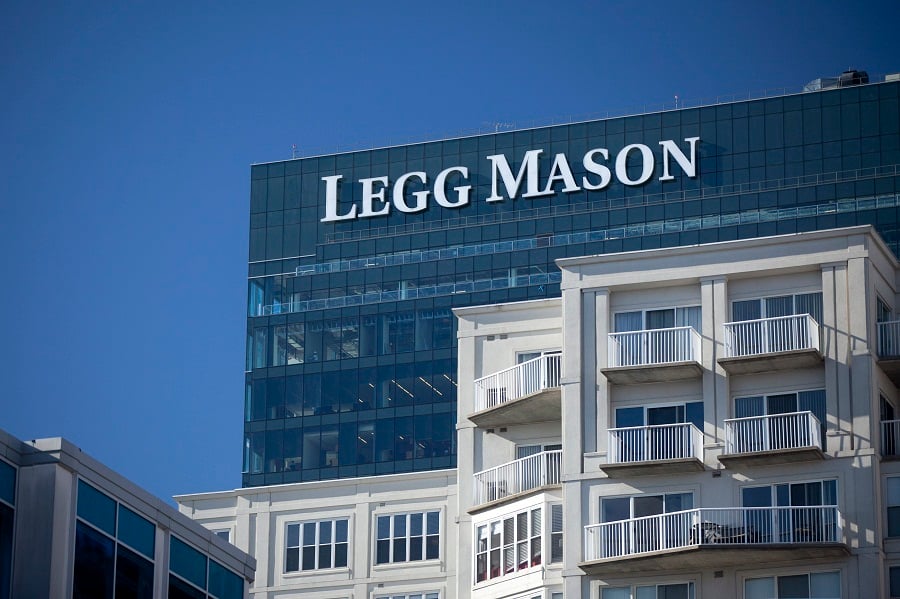Asset management firm Legg Mason, Inc. on Friday debuted a retirement savings plan for small businesses, seeking to reduce the number of employers that don't offer access to a workplace savings plan and playing off a growing enthusiasm among states to close the coverage gap.
Legg Mason, together with a record-keeping firm and distribution partner, launched EZ IRA, a payroll-deduction individual retirement account program for small businesses that don't have a 401(k) or other retirement plan for employees.
States such as Illinois, Oregon, Massachusetts, Washington and New Jersey have passed legislation that would set up retirement programs for private-sector workers without workplace plan coverage. A similar bill in Maryland is
headed to the governor's desk later this month. Other states, such as Connecticut and California,
are considering such options.
The structure of such programs varies between states, with some mandating coverage through an automatic-enrollment IRA (“auto-IRA”) and others setting up a small-plan marketplace.
The Obama administration also
set up a voluntary, starter savings plan, available through the workplace, called myRA, allowing for payroll deduction into a Roth IRA.
Legg Mason's program is an alternative to the state plans and myRA, said Gary Kleinschmidt, the firm's head of defined contribution-investment only (DCIO) sales.
“Obviously there's a lot of concern about the coverage gap in the country,” said Brian Graff, chief executive of the American Retirement Association, a retirement industry trade group. “This product is a clear reflection of that trend, which I expect to continue.”
While advisers may fear these types of plans could crimp their ability to prospect 401(k) business among small employers, where the bulk of the untapped market is, Mr. Graff thinks otherwise.
“Introducing employers to retirement savings programs gives advisers the opportunity to upsell them to a 401(k),” he said. “In other words, since you now have to do a plan, why not do a 401(k).”
The EZ IRA program is available through a company called iVEZT, a holding company 30%-owned by Legg Mason and 70%-owned by Jeff Harris, chief executive of Cennairus Financial, a provider of workplace insurance services that will handle distribution of the EZ IRA program through payroll companies. Mr. Harris is also chief executive of iVEZT.
Aspire Financial Services will handle record keeping.
Employees have the option of voluntarily contributing to traditional or Roth IRAs. Investments in the IRAs will be proprietary Legg Mason funds, in R or I shares, available through one of the firm's nine affiliates.
Employers don't pay a plan fee, but may have to pay payroll integration and connectivity fees. In addition to investment management fees, employees pay $5 per month ($60 annually) as well as two basis points per month on assets for record-keeping and administration services.
Because the program uses payroll deduction without automatic enrollment, it wouldn't be governed by the Employee Retirement Income Security Act of 1974, which would subject employers to a fiduciary responsibility.
Legg Mason established a network of 150 hand-selected retirement-focused adviser teams across the country to provide education, communication and investment services, according to Mr. Kleinschmidt. The firm hopes to partner with broker-dealers to reach more remote geographical locations in the future.
EZ IRA was also established with the Labor Department's new “fiduciary” regulation in mind — advisers get a level 50 basis points through revenue sharing arrangements or an advisory fee in all circumstances to avoid conflicts of interest.
The question of being subject to ERISA statutes has been a sticking point among some of the states mandating automatic enrollment in their programs. The Department of Labor has proposed rules that would exempt states using a mandatory auto-IRA program from being subject to ERISA rules, which has led some critics to say these state plans would have an unfair advantage over 401(k) plans.
Legg Mason could also benefit from a provision in some of the state rules allowing employers to select an IRA program offered by the state or one through the private sector, according to Mr. Graff. He feels the majority would elect a private-sector option.
Some question the efficacy of such IRA programs, which only allow for a maximum $5,500 contribution and don't offer an employer match, to boost retirement savings among Americans.
The Employee Benefit Research Institute, for example, conducted an
analysis last year of how much auto-IRAs would impact retirement readiness, finding that in a scenario of 100% participation and a 3% contribution rate, the probability of a successful retirement would increase a fairly small 8.4%.
And because the EZ IRA program is voluntary, not seizing on the behavioral impact of auto-enrollment, its reach could be limited — following myRA's rollout, advisers said the voluntary nature of the program
would undermine its effectiveness.
These plans, though, are more of a “baseline” to get started with retirement savings, Mr. Graff said — the hope is employers will eventually move to a 401(k)-type plan.







